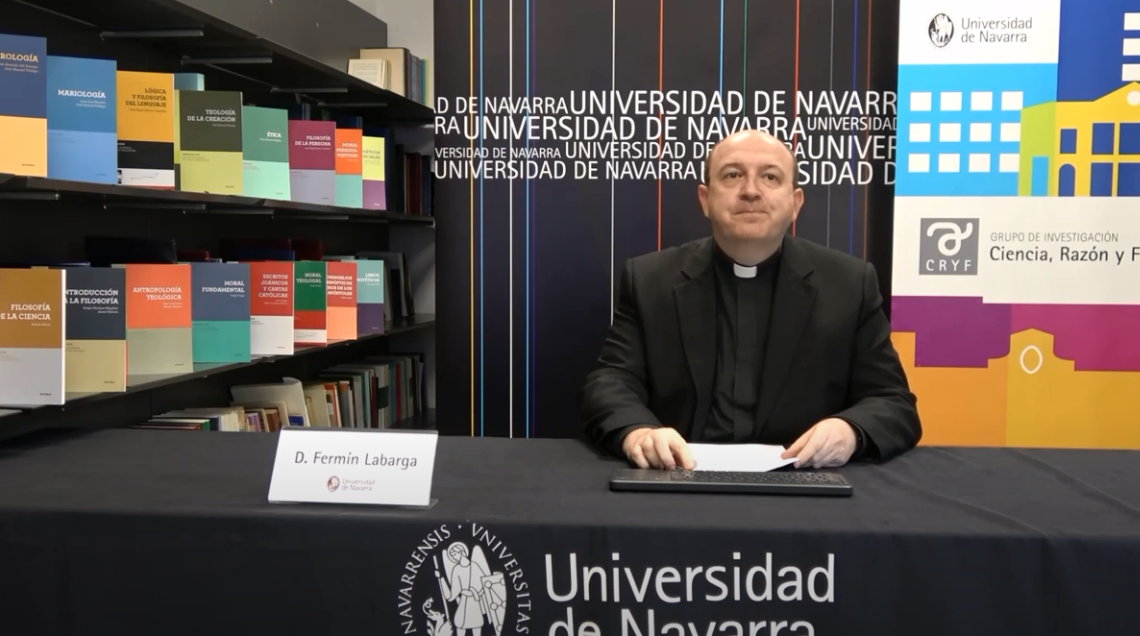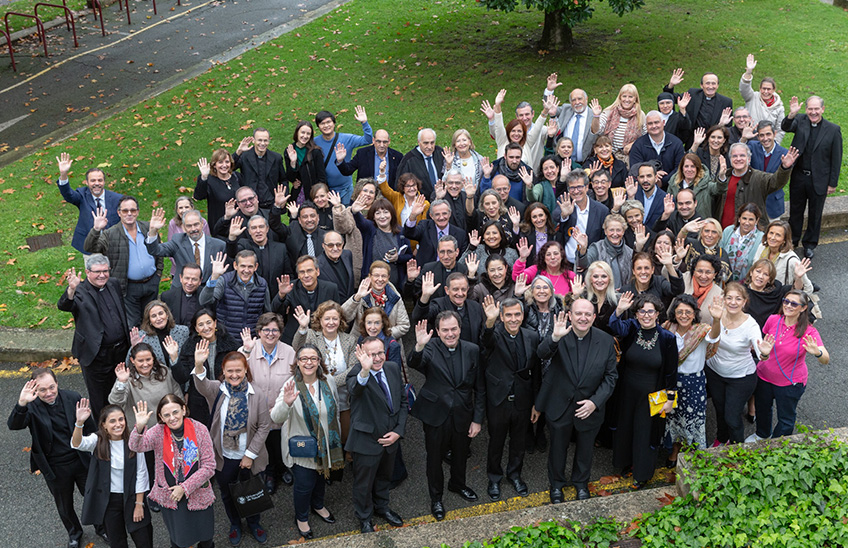"The problem with the relationship between science and faith lies in the fact that our understanding of God is always limited".
The high school Higher School of Religious Sciences (ISCR) of the University of Navarra is organising a course on the intellectual and didactic challenges of evolution and human specificity.

FotoManuelCastells/Fermin Labarga, director of the ISCR, presented the course "Evolution and Human Specificity" PHOTO: María Acebal
18 | 03 | 2021
"The underlying problem in the relationship between science and faith lies in the fact that our understanding of God and the tools we have to make Him known are always limited", explained Santiago Collado. In response to this challenge, the high school Superior of Religious Sciences of the University of Navarra held the course "Evolution and Human Specificity", with the partnership of group of research "Science, Reason and Faith" (CRYF).
The workshop was attended by Fermín Labarga, director of the Higher Institute of Religious Sciences, Santiago Collado, professor of Philosophy of Nature, Rubén Herce, professor of Philosophy of Science, Javier Bernácer, researcher of group Mind-Brain of Institute for Culture and Society (ICS) and Mª de Ujué Moreno, researcher of Cima University of Navarra. The speakers addressed in four sessions the intellectual challenges and didactic challenges of the theory of evolution, as well as the peculiarity of the human brain compared to the animal brain and the impact of the humanistic training on the scientific development , respectively.
The supposed conflicts with science are also an opportunity to deepen our own faith and our way of transmitting it. And there are many challenges in terms of didactics, such as "the search for usefulness on the part of the students of what is explained or the lack of time when it comes to teaching the syllabus, which means that the urgent takes precedence over the important", according to Rubén Herce. In view of this, the teacher advised to value training from goal: "The aim is for students to have a comprehensive knowledge and to develop critical thinking".
Javier Bernácer explained that "human beings are qualitatively different from other animals, precisely because of the peculiarity of their brain", which is observed in small genetic changes, such as gene duplication or very specific changes in them, which can give rise to major changes between species. And it is in this scientific research that the humanistic training acquires a fundamental role: "Science serves to answer the "why" of what I am researching, but not the "why" of my research", said María de Ujué, stressing the value of the humanistic training in all scientific activity.




